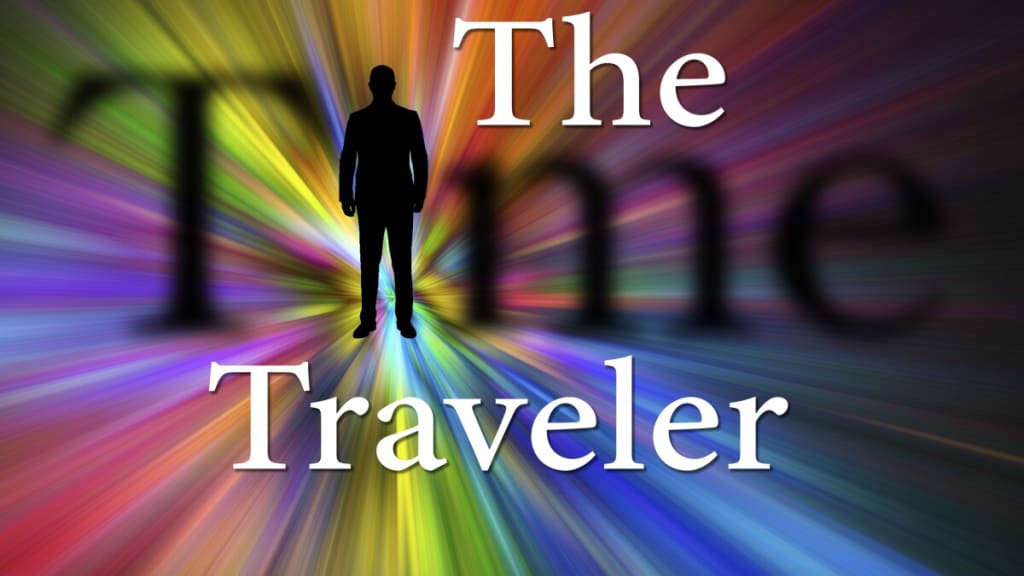Imagine Meeting A Time Traveler
Why haven't We Encountered A Time Traveler, If Time Travel Is Indeed Possible?

If time travel is feasible, why haven't we encountered a time traveler yet? If we have, how would we know they aren't acting? How would their time machine look and function? Would there be guidelines that time travelers must abide by, and what would happen if they did not? Here's what would occur if you encountered a time traveler and this is what if.
In 1998, a guy by the man going by the name of John Titor claimed in his timeline that General Electric had succeeded in creating time travel in the year 2034. He even showed and detailed his time-traveling apparatus in great detail. Did Tito complete his mission or was he genuine at all? If so, how could we know? If we could demonstrate that someone has traveled from a different era, it would be fantastic for science, even though it might contradict Albert Einstein's theory of relativity.
According to Einstein's theory of relativity, space is a three-dimensional spectrum that gives us length, width, and height. Time gives direction. Together, these dimensions constitute a space-time continuum, which is subject to the influence of gravity. Since space and time are one, gravity may theoretically bend both space and time. However, unless you could somehow get yourself close to a black hole like Sagittarius, you would need to detect any changes in the passage of time. Gravity is a curve in space-time.
The reason you would be experiencing time at half the pace of people on Earth is that Sagittarius creates an extremely powerful gravitational field around itself by packing the mass of four million Suns into an infinitely dense point. Moving extremely quickly is another method of traveling through time; the closer you approach the speed of light, the slower time passes for you. For example, if you were a passenger on a train that could travel at 99% the speed of light, 223 years would have passed back at the station for each year you were on the train, turning you into a time traveler into the future. However, what if you could travel back in time, as John Titor claimed he did?
The C 204, as Titor dubbed it, contained two micro singularities that allowed him to manipulate gravity. It also had gravity sensors to lock the machine and time traveler in a fixed location in space. Titor claims that this small machine is what made time travel possible in any direction. Though it would only take him as far as 60 years from his time, Tito had this device placed in a car that worked a lot like the good old time-traveling DeLorean did. How would you know that Tito was indeed traveling in time and not just making it up?
Even more difficult than time travel itself may be proving someone is a time traveler. Time travelers may offer predictions about the future, demonstrate their futuristic technologies, or even submit to DNA testing to bolster their claims. Although there are simpler ways to demonstrate the viability of time travel, perhaps the best way would be to accompany them on their next adventure. In 2009, renowned theoretical physicist Stephen Hawking hosted a party that was exclusive to future time travelers.
Hawking didn't send out invitations until after the party because he thought that if time travelers from the future arrived before the invitation was sent out, that would prove that time travel would become possible one day. He sat there waiting for hours, but nobody showed up. This doesn't mean that time travel is impossible, though; general relativity theory suggests that wormholes, or bridges in space-time, exist. The main issue with wormholes is that they're too small and collapse too quickly for a human to pass through.
However, it's possible that time travel wasn't exactly as planned, that guests from the future arrived but missed the party, or that time travelers are strictly forbidden from traveling back in time for fear that doing so would alter their timeline, or that they are simply attempting to minimize the possibility that they would inadvertently expose us to diseases from the far future, or that time travel knowledge is so highly classified that only a select few would be trusted with it. Perhaps there is no way to travel back in time; perhaps time can only move ahead and never backward.
In a way, we already have time travelers in our lifetimes; astronauts on the International Space Station age more slowly than people on Earth, though the difference is measured in hundreds of microseconds. If you're listening, you're invited to a reception for time travelers hosted by Stephen Hawking. The party will take place at the University of Cambridge, United Kingdom, on June 28, 2009, and there is no need to RSVP.
Additionally, if you have the chance, make use of the black hole's time-traveling powers by jumping into a spacecraft. Just be careful not to collide with the gravitational monster, but that's a tale for another day.






Comments (1)
Super!!! Excellent story!!!